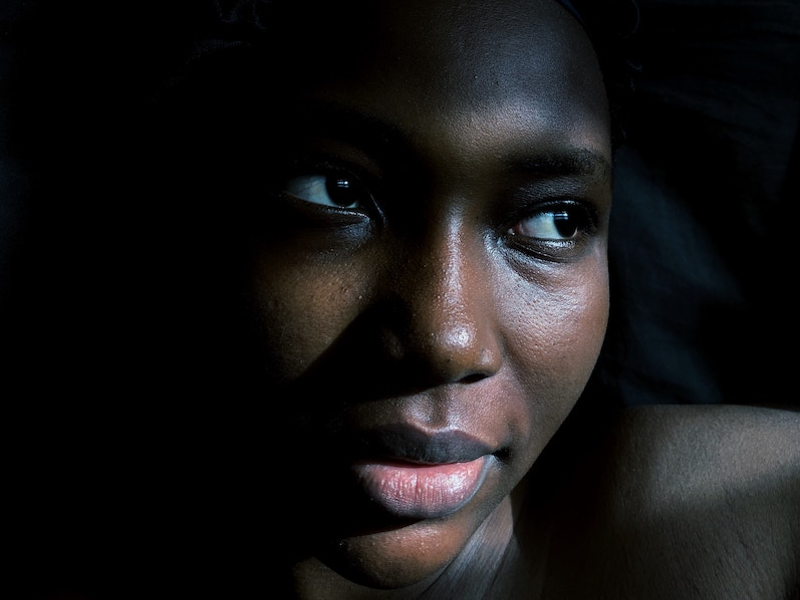Photo by Oluwatobi Fasipe on Unsplash
Breast cancer continues to be a pressing health concern worldwide, and its impact on the African continent is particularly noteworthy. Despite concerted efforts and advancements in medical science, breast cancer remains a leading cause of cancer-related deaths among women in Africa.
A disparity exists where Black women face a 41% higher likelihood of dying from breast cancer compared to white women despite having a lower risk of initial diagnosis. This discrepancy partly arises from Black women often receiving a breast cancer diagnosis at a later, more advanced stage, posing more significant challenges for effective treatment.
Breast cancer is becoming an increasingly significant concern in Africa, and it’s essential to consider the various factors that contribute to its rise. Population growth, aging, lifestyle changes, and limited access to early detection and treatment facilities are among the factors that have contributed to the increase. Moreover, specific genetic factors linked to aggressive forms of breast cancer in African populations make tailored interventions all the more necessary. The disparity in breast cancer occurrence and outcomes among Black women is complex, and it’s essential to consider the various factors that contribute to these differences. Social, economic, and behavioral elements all play a role. Black women have higher rates of health conditions such as diabetes, heart disease, and obesity, which are recognized as risk factors for breast cancer. Additionally, they are less likely to breastfeed after giving birth and are more prone to inadequate health insurance coverage and reduced access to healthcare facilities. These factors can make it difficult for them to undergo screenings, receive follow-up care, and complete necessary therapies.
Challenges in combating breast cancer in Africa are multifaceted. Limited access to healthcare services, especially in rural areas, poses a substantial barrier to early diagnosis and treatment. Screening programs and mammography facilities are often scarce, leading to delayed detection and diagnosis. Additionally, prevalent misconceptions and cultural beliefs surrounding cancer contribute to late-stage presentations, hindering timely interventions and reducing treatment success rates.

Photo by Dellon Thomas
Efforts to enhance breast cancer control in Africa have gained momentum, recognizing the urgent need for better awareness, resources, and infrastructure to combat this pervasive disease. Several initiatives and strategies have been implemented across the continent to address the challenges unique to African communities in battling breast cancer.
- Awareness Campaigns and Education: Various organizations, including NGOs, governmental bodies, and advocacy groups, have spearheaded extensive awareness campaigns. These efforts aim to educate individuals about breast cancer, emphasizing the importance of early detection through regular screenings and promoting a better understanding of available treatment options.
- Community-Based Programs: Community engagement lies at the heart of effective breast cancer control in Africa. Programs tailored to specific cultural contexts are designed to debunk myths, dispel stigmas, and encourage proactive health-seeking behaviors. These programs often involve community leaders, local health workers, and grassroots organizations to ensure a more widespread impact.
- Improving Healthcare Infrastructure: Several African countries are investing in strengthening their healthcare systems to provide better support for breast cancer patients. This involves building specialized cancer centers, enhancing diagnostic capabilities, and expanding access to essential treatments and medications. Training healthcare professionals in early detection and specialized care is also critical.
- Collaborations and Partnerships: International collaborations are pivotal in addressing the gaps in breast cancer control in Africa. Partnerships with global health organizations, research institutions, and philanthropic entities facilitate knowledge exchange, resource sharing, and financial support. These collaborations aim to bring innovative technologies, expertise, and funding to enhance diagnosis, treatment, and support services.
- Policy Development and Implementation: Governments are developing comprehensive cancer control policies focusing on breast cancer. These policies aim to prioritize funding, improve access to care, and implement screening programs at a national level, ensuring a more coordinated and systematic approach to breast cancer management.
Breast cancer in Africa navigates a complex landscape shaped by socio-cultural nuances, healthcare disparities, and systemic challenges. While strides have been made in awareness, healthcare infrastructure, and community engagement, persistent efforts are essential to bridge the gaps in diagnosis, treatment, and overall care outcomes.
Sustainable progress requires collaborative endeavors, both within African nations and through international partnerships, to address the multifaceted challenges posed by breast cancer. By advocating for comprehensive strategies tailored to diverse African contexts and prioritizing equitable access to quality healthcare, a brighter future can be envisioned for individuals impacted by breast cancer in the African continent.

Anand Subramanian is a freelance photographer and content writer based out of Tamil Nadu, India. Having a background in Engineering always made him curious about life on the other side of the spectrum. He leapt forward towards the Photography life and never looked back. Specializing in Documentary and Portrait photography gave him an up-close and personal view into the complexities of human beings and those experiences helped him branch out from visual to words. Today he is mentoring passionate photographers and writing about the different dimensions of the art world.





